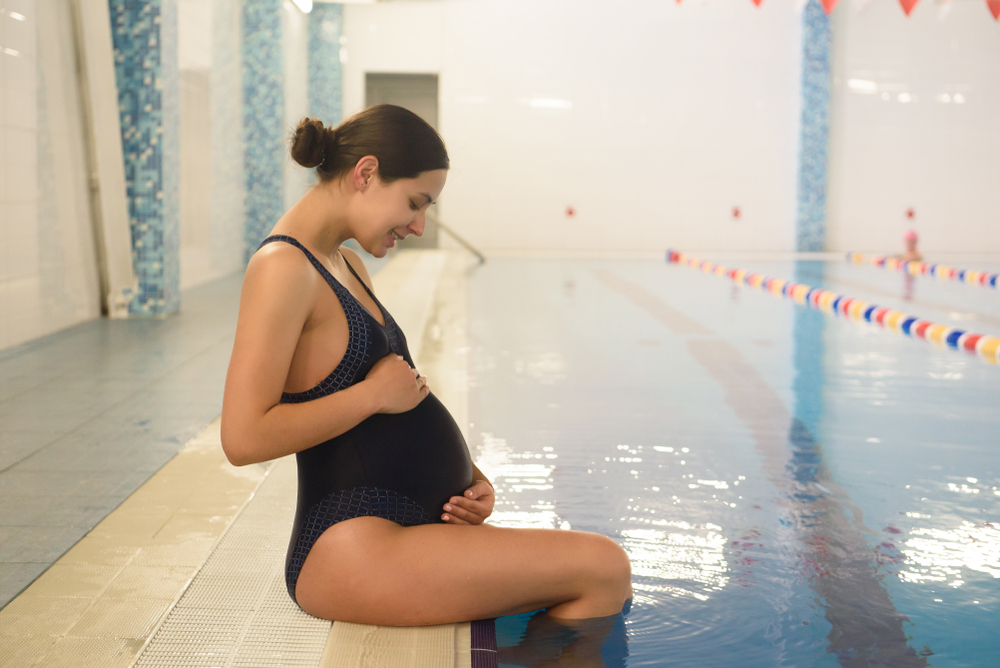Physical activity in pregnancy
Physical activity in pregnancy
Pregnancy can be a time of conflicting messages about what you should and should not be doing for the health of your unborn baby, and this includes the subject of physical activity. The fact is that being physically active during your pregnancy can have many benefits for both you and your baby.
It is important to remember that some forms of activity may not be suitable, like those where there is the possibility of you losing your balance. Consult with your doctor or midwife about what activities are suitable for you before continuing with the activities you took part in before falling pregnant, or before embarking on a new exercise regime.
The benefits of physical activity during pregnancy
It is well known that regular physical activity can help to reduce the risk of:
- obesity
- type 2 diabetes
- high blood pressure
- heart disease
- some cancers
- osteoarthritis
- depression

This is still the case when pregnant. Added benefits during pregnancy can include:
- improved state of fitness during pregnancy
- reduction in common pregnancy complaints such as varicose veins, swelling in the legs and feet, lower back pain and fatigue
- reduction in risk of developing gestational diabetes and pre-eclampsia
There is also some evidence to suggest that women who exercise during pregnancy have shorter labours and fewer delivery complications than those who do not.
If you had low levels of activity before pregnancy, begin with 15 minutes of continuous aerobic exercise, three times a week, and gradually increase this to 30-minute sessions four times a week or more. If you were very active and fit before pregnancy then you should be able to continue with your programme of activity, within reason, but should expect your fitness and activity levels to decrease as your pregnancy progresses.
Staying safe
The changes your body goes through whilst pregnant means you must be more cautious with some activities and avoid others altogether.
- Avoid contact sports to reduce the risk of your bump being hit. You will need to avoid scuba diving too, as the change in pressure may not be good for your baby. You should also avoid exercising at altitude (over 2500m) until you have acclimatised, which may take a few days.
- You may also wish to avoid sports such as horse-riding, skiing, ice hockey, cycling and gymnastics, as these sports have a risk of falling that could hurt your baby.
- You may notice that your joints become more flexible. This is because of hormonal changes and may make you at increased risk of injury. To reduce the risk make sure you do warmup and cool down exercises and avoid sudden changes of direction when exercising. Do speak to your doctor or midwife if you are concerned.
- Do not exercise too strenuously and become breathless. You should be able to still hold a conversation whilst you exercise.
- Exercise sessions should be preceded with a warmup and followed by a cool down.
- After 16 weeks of pregnancy, it is recommended to stop any exercises which involve lying on your back, due to the womb putting pressure on one of the large veins when in this position.
- Avoid exercising in hot humid conditions, as you are more likely to get too hot during exercise when you are pregnant, and this can be dangerous for your baby.
- Keep well hydrated during exercise. Make sure you drink before, during and after exercise.
- Limit your exercise sessions to less than 45 minutes at a time.
- And do not forget, if you have any unusual symptoms, you should stop exercising and see your doctor or midwife.
Activities that work for you
Antenatal exercise classes provide an opportunity to meet up with other pregnant women and may help in keeping you motivated to carry on exercising through your pregnancy. If you would rather go it alone, then there are plenty of other options such as walking, jogging, swimming or just dancing around the room to your favourite music! If you take part in exercise classes, make sure you tell your instructor that you are pregnant and check that they are qualified to offer advice to pregnant women. Pregnancy is a great opportunity for you to start being physically active and make it become a habit, so that once your baby is born you can continue exercising, which could help you to achieve a healthy post-pregnancy weight.
Information reviewed June 2015
